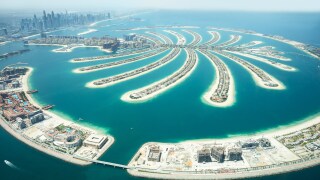Specifically, the agreement makes for the deployment of a submarine fibre optic cable that connects Antarctica with the rest of the world through Chile and includes a market consultation process for the preparation of a technical, legal, economic and financial feasibility study.
“This milestone is the beginning of a long journey that aims to provide Antarctica with a connection to the global high-speed network," said Patricio Rey, general manager at Country Development,
"This infrastructure could bring the white continent considerably closer to the world and allow the sharing of scientific information in real time with research centres around the planet.”
“The signing of this agreement reaffirms Chile's historic commitment to Antarctica. Starting the studies to bring the first submarine fibre optic cable there is a step that reaffirms our leadership position on the continent and our efforts to put the interests of science and the progress of all humanity at the centre," said Gloria Hutt, Chile's Minister of Transport and Telecommunications.
"As a government, we are determined to carry out this enormous project and, in this way, contribute strategically to the concerns of the international community and to expand the development of scientific cooperation.”
The agreement was signed by Francisco Moreno, the Undersecretary of Telecommunications; Jorge Flies, the Regional Governor of Magallanes; and Patricio Rey, the general manager of Country Development, in the city of Punta Arenas.
The potential cable route has an approximate distance of 1,000km from the city of Puerto Williams to Antarctica, creating an automatic latency advantage over the other continents due to its short distance.
“Despite being a continent that is based on scientific research, today Antarctica has enormous limitations due to insufficient digital connectivity," said Francisco Moreno, the Undersecretary of Telecommunications.
"Through this project, and thanks to the deployment of the Austral Fiber Optic (FOA) in Magallanes and Tierra del Fuego, we aspire that the large volumes of scientific information that arise from the multiple and transcendental investigations that are carried out in this continent, such as climate change and biological evolution, circulate from Antarctica to the rest of the world through Chilean telecommunications networks. We are taking the first step to create an Antarctic digital hub and consolidate Chile's position as the region's digital hub.”
Other benefits of the deployment of the Antarctic subsea cable are the facilities offered by the landing station in Puerto Williams, the closest to this continent, and enables the deployment of a fibre optic cable system across the Southern Ocean.
In addition, with the cable installed in Tierra del Fuego, as part of the Austral Fiber Optic initiative, the system has an comparative advantage in terms of cost and establishes an interconnected network connecting the continent with the rest of the world through the extensive networks aross Chile.
“For the Regional Government of Magallanes and Chilean Antarctica, whose historical characteristics as a region have been isolation, the possibility of being connected to the world through fibre optics is a fundamental element for the 21st century," said Jorge Flies, regional governor of Magallanes.
"This fact has been materialised with the Austral Fiber Optic, but part of the territory of Magallanes is in the Chilean Antarctic and in an act of extension of the national territory, of sovereignty of the XXI century in science and technology, the advance from the Austral Fiber Optic an Antarctic fibre would have a great impact not only for the Magallanes Region, but also for the history of Chile and the international agreement of the Antarctic Treaty.”






